With its brand new Prince of Asturias Award for Literature, the literary career of Antonio Munoz Molina it acquired that prestigious look that should appease the ego of any author, a kind of balm that ensures the passage to the immortality of history of all those who dedicate themselves to a noble art such as writing, in this case.
He has merits, and although I am not much to praise the authors for their medals, I recognize when the award corresponds to effort and good work. Because beyond the fictional narrative, Antonio Muñoz Molina has lavished himself in every field that one word after another can be noted: essays, stories, articles and even newspapers have been ideal spaces for spreading (in a good way) his creative imprint.
But you know, in this holy blog, the time always comes, for each author, to go through my very subjective filter, the one that determines, with greater significance if possible than the Prince of Asturias Award :)))))) the true dimension of his works. I'm going there.
top 3 recommended novels by Antonio Muñoz Molina
The Polish Horseman
The bad thing about being a writer or painter or musician is that at a certain moment your masterpiece arrives. And if this happens sooner rather than later, you can start thinking about writing from then on just shadows of your greatest creation. Muñoz Molina has written huge books after this one, books that any other writer wishes they had written, but here, in my opinion, he touched his ceiling.
The protagonist, who is a simultaneous translator, evokes in a story, which is like a puzzle in which all the pieces end up fitting together, life in the Andalusian town of Mágina, where he was born. His great-grandfather Pedro, who was a foundling and was in Cuba, his grandfather, an assault guard who ended up in a concentration camp in 1939, his parents, peasants who led a resigned and dark life, himself in his childhood and adolescence, a witness to the great transformation that the place undergoes over the years.
Many other residents of Magina are also appearing, such as the chief of police, a shameful poet, the photographer, a journalist, Commander Galaz who in 1936 repressed the military uprising, and the elderly doctor, strangely related to the discovery of the mummy of a young woman sandwiched.
Over the course of a long period of time, between Prim's assassination in 1870 and the Gulf War, these characters form a gripping mosaic of lives through which a past is recreated that illuminates and explains the narrator's personality.
Antonio Múñoz Molina, in an admirably well-thought-out story written with exceptional security and brilliance of style and language, gives us in El jinete polaco, Premio Planeta 1991, a unique work in the panorama of contemporary Spanish literature.
The night of the times
Love and war are two subjects practically necessary to compose a great work adjusted to a war period. The counterweight shows us the characters of the story on the tightrope. October 1936.
The Spanish architect Ignacio Abel arrives at the Pennsylvania station, the last stage of a long journey since he escaped from Spain, via France, leaving behind his wife and children, isolated after one of the many fronts of a country already broken by war . During the trip he remembers the story of clandestine love with the woman of his life and the social tension and confusion that preceded the outbreak of the fratricidal conflict.
The night of the times It is a great love novel, through which real characters and fictional characters pass, weaving a collective network that contextualizes the personal experience of an individual and that turns the narration into the sounding board of an entire era.
Like the shadow that leaves
There are sinister characters in history whose testimony can trap us. Perhaps it is a matter of understanding evil, or perhaps it is an intentional exercise of the author to show what we can get to share with the murderer ...
From the outset, Antonio Muñoz Molina shares the scene of the escape of the protagonist of this novel… On April 4, 1968, Martin Luther King was assassinated. During the time he was on the run, his killer, James Earl Ray, spent ten days in Lisbon trying to get a visa for Angola.
Obsessed by this fascinating man and thanks to the recent opening of the FBI files on the case, Antonio Muñoz Molina reconstructs his crime, his escape and capture, but especially his steps through the city. Lisbon is the landscape and essential protagonist in this novel, as it welcomes three journeys that alternate in the writer's gaze: that of the fugitive Earl Ray in 1968; that of a young Antonio who left in 1987 in search of inspiration to write the novel that established him as a writer, Winter in Lisbon, and that of the man who writes this story today from the need to discover something essential about these two complete strangers.
Original, passionate and honest, Like the shadow that is addressed from maturity relevant themes in the work of Antonio Muñoz Molina: the difficulty of faithfully recreating the past, the fragility of the moment, the construction of identity, the fortuitous as the engine of the reality or vulnerability of human rights, but they take shape here through a completely free first person who investigates in an essential way in the process of writing itself.
With these three novels you should fall asleep to the mastery of this author. Its historical settings are soaked in unique perceptions, cameos by the author himself, ideas about what it was that could have been both in history and in the intrahistory of its universal characters.
Other interesting books by Antonio Muñoz Molina ...
Back to where
Nobody better than a great writer to tackle that misplacement that haunts us lately. Pandemic and alienation are two strange travel companions that undermine morale and against which we must have good footholds to sustain us in full distress.
Madrid, June 2020. After a three-month confinement, the narrator attends from his balcony when the city wakes up to the call new normal, as he relives the memories of his childhood in a peasant culture whose last survivors are now dying. To the painful realization that with him the family memory will disappear, is added the certainty that in this new world born of an unprecedented global crisis, harmful practices that we could have left behind still prevail.
Back to where It is a book of overwhelming beauty that reflects on the passing of time, on how we build our memories and how these, in turn, keep us standing in moments when reality is suspended; an essential testimony to understand an extraordinary time and the responsibility that we acquire with the new generations.
An accurate observer of the present, Antonio Muñoz Molina offers in these pages, by way of a luck Diary of the year of the plague by contemporary Daniel Defoe, a lucid analysis of the current Spain at the same time that it reflects the irreversible transformation of our country during the last century.
I won't watch you die
Honoring Milan Kundera and his determination to narrate human existence as a network of coincidences between impossible scripts, Muñoz Molina leads us through one of those love stories made losses and defeats until the final exit from the stage. Nothing happened as expected. Circumstances were, once again, excuse and impediment. Horizons taken as destinations with the certainty that there was another line in parallel that perhaps he should have followed to achieve happiness instead of success, when it is already known that the latter is not so important.
During their youth, Gabriel Aristu and Adriana Zuber starred in a passionate love story that seemed destined to last forever. The future, however, had other plans for them. Separated for fifty years by an ocean of solitary confinement, she trapped in the Spain of the dictatorship, he living professional success in the United States, they meet again in the twilight of his days. Looks, caresses, silenced desires and old reproaches will then give way to the realization that the nostalgia for that first love is also nostalgia for the person we once were.
I will not see you die is a novel about the power of memory and oblivion, loyalty and betrayal, the ravages of time and the obstinacy of love and its mirages. The moving story of a frustrated passion for life and a beautiful portrait of old age written with extreme delicacy.

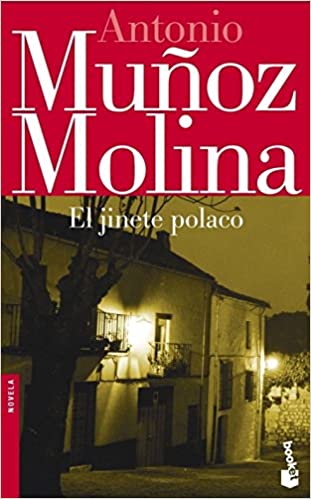
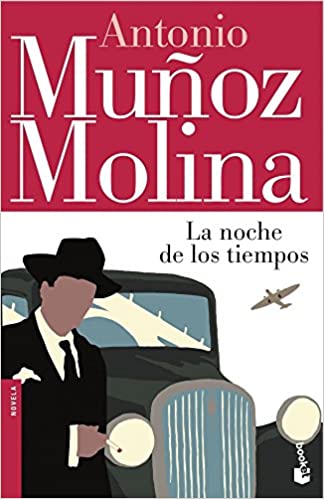
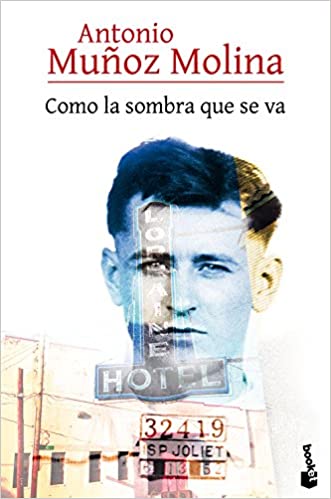
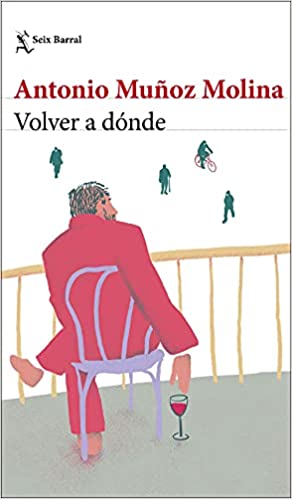
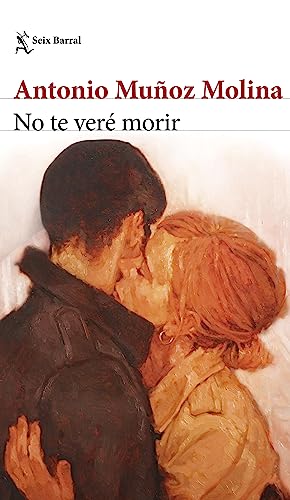
1 comment on «3 best books by Antonio Muñoz Molina»